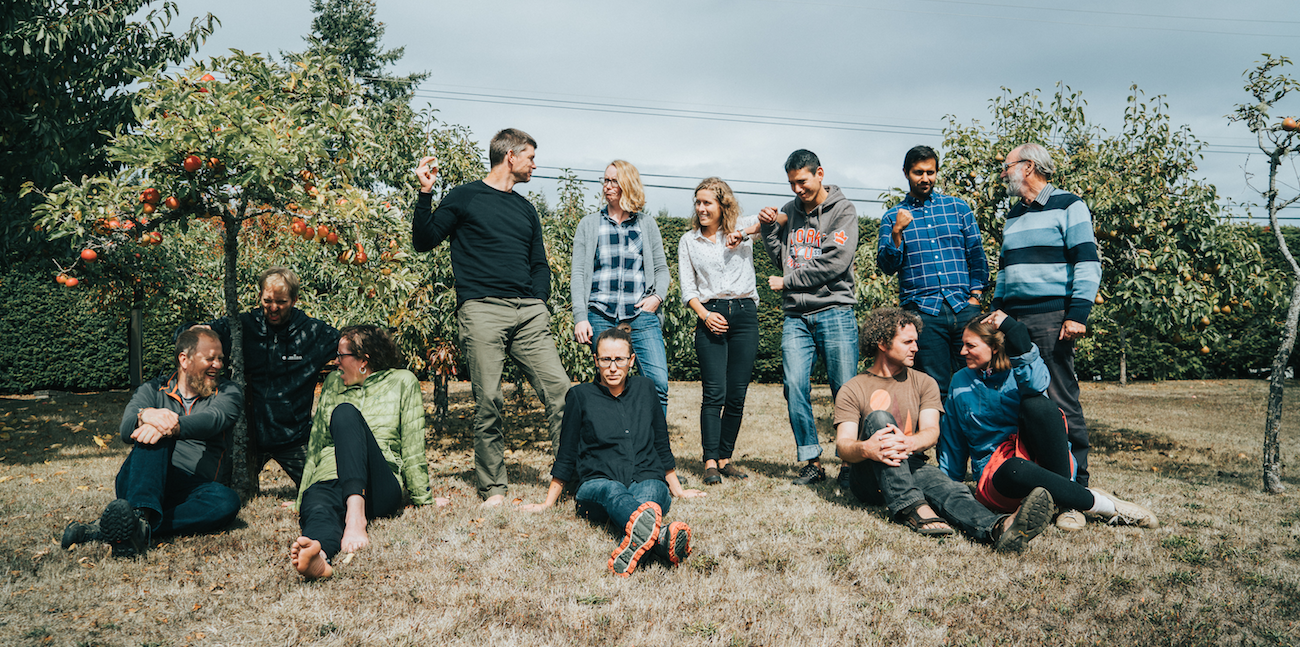
By Kenzie Love
Edmonton City Council took the historic step last month of adopting a “carbon budget”, which sets a cap on the amount of greenhouse gas emissions the city can emit — ever. Last June, meanwhile, Halifax city council unanimously approved a comprehensive climate action plan. For Sustainability Solutions Group (SSG), the worker co-op that helped develop both cities’ initiatives, these are not the first climate plans that they have helped create — nor, as more municipalities and other institutions begin to grapple with the climate crisis, will these plans be the last.
With mounting evidence of the climate crisis appearing everywhere, SSG’s work has become steadily more important since its founding in the early 2000s. The brainchild of a group of recent university graduates, the co-op grew out of the founders’ desire to meaningfully address climate change issues. SSG started its work with Canadian university campus’ sustainability assessment and planning activities and went on to help design and certify Canada’s first LEED buildings. The co-op continued on to pioneer climate action planning for municipalities across Canada and is now delivering innovative municipal climate planning projects in the US.
Emily McQuarrie, SSG’s Director of Finance and Administration, says incorporating as a worker co-op was central to the founders’ philosophy, allowing them to focus on work that they found meaningful and empowering in a non-hierarchical, democratic workplace.
“Conventional corporations were not and are not satisfying the needs of the people that work for them, nor do they adequately address the climate crisis,” she says, “Corporations typically don’t prioritize the needs of our planet.”
Prioritizing the needs of the planet and society, in contrast, is what SSG strives to do in all its work, from agricultural planning to green building to community engagement and more. Uniting these varied projects and a geographically dispersed workforce is a common desire to improve sustainability, quality of life and health outcomes for citizens and ecosystems. McQuarrie, who joined SSG in 2016, says SSG’s democratic nature was also an important factor in motivating her to join it.
“I felt like I could actively participate in the management and the governance of the organization,” she says. “We were all working beside each other, rather than above or below each other, and that really appealed to me.”
As McQuarrie acknowledges, changes that have happened in recent years have made working beside each other more complicated: SSG has grown its membership, expanded its work into the US, and is working increasingly closely with whatIf? Technologies, an employee-owned corporation that specializes in computer-based simulation models. But she’s found SSG’s ability to maintain a “flat” leadership and decision-making structure in spite of these changes one of the more rewarding aspects of its journey, as the co-op learns to balance the contributions of long-term and new members. A willingness to talk openly about whether to grow or not, and to engage in these conversations early on in the process, McQuarrie believes, has helped SSG manage its growth successfully.
SSG has also benefited, McQuarrie believes, from being a part of CWCF and the broader Canadian co-op movement. And whatever direction it takes in the future, this sense of kinship seems likely to remain.
“Belonging to CWCF gives us the opportunity to engage and organize with other co-ops across Canada. It is a reminder that we belong to a community of folks who see things in the world that they want changed, and they’re doing something about it,” she says.